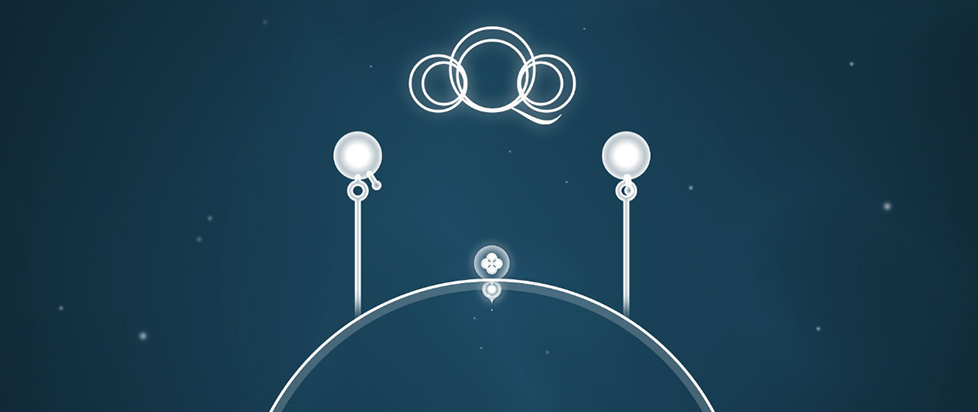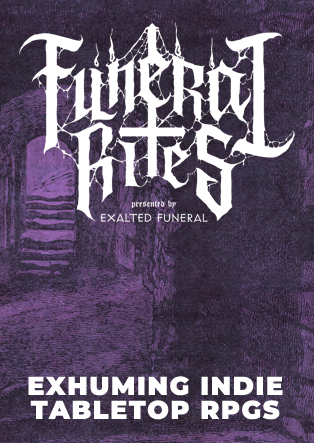
Puzzler oQo Taught Me How to Relax by Stressing Me Out
I’m at Gamescom, Europe’s biggest games convention. Normally this would come off as bragging, but it’s context I need to talk about my experience with oQo, an upcoming puzzle game by Lance and 3-50. When I first heard about the game, I knew I wanted to play it thanks to the enduring appeal that relaxing games have on me as someone who is perpetually stressed-out.
From its visuals alone, with every surface you travel on constructed of nothing but circles, oQo looks deceptively simple. You have one aim: make it from one end of the screen to the other by riding circle shapes like waves. What makes the set-up so intriguing are the many different attributes the shapes can have. Circles can expand, dissolve, act as enemies and barricades you need to dodge, and more. You trigger most of the circles you ride on yourself, looking for the right moment to activate them and make a jump. All of this turns oQo into a game that requires timing, a good eye for what’s happening on screen, and what order these things are happening in.
Back to me, frazzled, a hastily wolfed down 10$ pretzel the only sustenance I could find while getting lost twice on the way to meet one of the developers of this game. At this point, oQo has to really bring the relaxation. First however, it brings me in contact with Grégoire “Grhyll” Jandot dit Danjou, who works on the game together with his friends Maxime Vican and Florent Réfrégé, who form development studio Lance. When I meet him, he greets me like a tall glass of water greets the thirsty, which in this context means that after a morning filled with people briskly asking my name while holding actual clipboards, he’s just another human being who says hi and shakes my hand. He looks like someone for whom making a game devoid of conflict would be a no-brainer.
“I love experimental projects with a message, so after Maxime and Florent came back from a meditation retreat, we embraced this as a theme for our game, and the relaxing part is almost a side effect of that,” he tells me. “It’s also a conscious decision, in a world where so many game focus on doing battle, to offer something different. Games like Journey, Abzû, Monument Valley or The Witness are big influences for us.”
When I sit down with the game, I think about how surreal it is to sit down with a relaxing game in an inherently stressful environment. I’m not good at puzzle games, so I tend to sit with them the way I do with strategy games – completely silent and unmoving, trying to work out what I need to see in order to advance. This approach however, is wholly unsuited for assisting the dev trying to gauge how people react to his game and what decisions the majority of them gravitate towards. It’s an interaction we can both gain something from, if I actually use the limited amount of time I have.
oQo however, derives most of its atmosphere from you taking the time you need to just take everything in. It’s by no means a fast game. The music is lilting, punctuated by a clear ping every time to trigger a circle. Visually, nothing distracts you from your task, but just like Abzû, the world unfolds to small moments of visual awe upon completion of a puzzle, which makes advancing even more satisfying .
Like all good puzzle games, it’s simple right up until the moment it isn’t. Initially developed for a game jam, prototype had a steep difficulty curve, and the team used the theme to both bring it down help focus the many additional mechanics they wanted to include. “Since the game was quite slow in the end, we settled on something a bit hypnotizing and relaxing, with sounds of sea waves and birds, which fit the mood we’re now going for,” Grhyll says.
During my demo session, giant headphone all but cut a dent in me, designed to cancel out all noise and focus me on the game, when I’m wholly unable to disconnect from the fact that this is not the space a game like oQo should live in. Ideally, it would be a nice challenge at the end of my day, making me feel sleepy and accomplished all at once. In this moment however, I take the headphone off several time to apologise for failing at the game, to which the person sitting next to me, the person who made the music, says “you should really listen to the music while you’re playing”.
“You’re very tense,” he also observes several time, smiling serenely. Then, finally, I solve a puzzle at the first try, almost instinctively. The satisfaction is near overwhelming. What’s even better is that in the next screen, something completely different awaits me. oQo encourages trial and error. The lack of hand-holding is frustrating, but like no other game, it made me aware that there is no shame in failing and trying again, no death, no permanent fail state.
That’s why this game may actually be like meditation in the way its makers intended. You need to get in to it, work with it for a while, find the right setting for yourself, and when you do, you can succeed.





